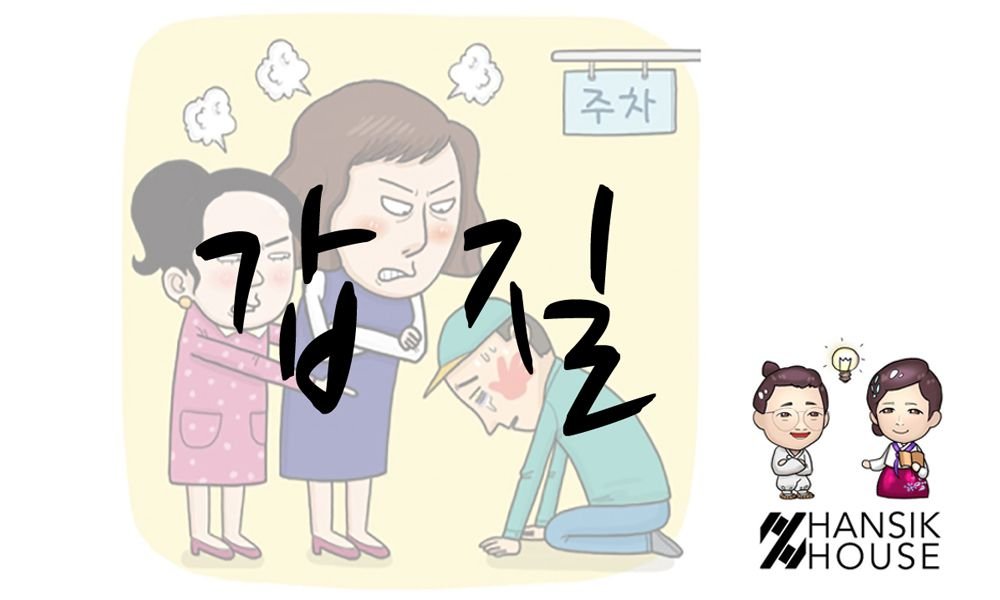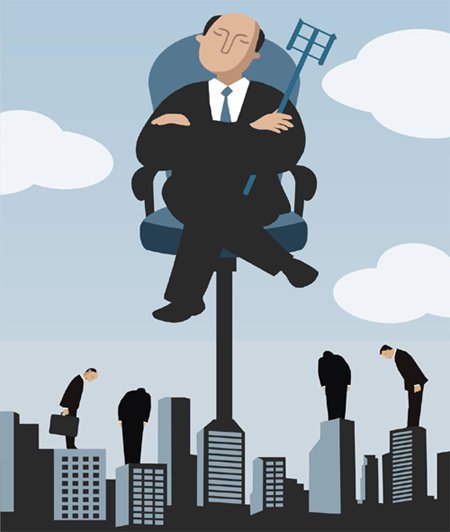
Daily Injustice
Have you ever been told to kneel in public? Or prostrate yourself on the ground in front of some one screaming at you? Have you experienced humiliation at the hands of someone who believe themselves to be “above” you?
This sounds like a nightmarish and fictitious scenario, doesn't it? In an age where the world tries to uphold democratic freedoms and rights, it seems unthinkable that such blatant dominance can be exerted between two people outside a dictatorship.
Unfortunately, this is a not-so-uncommon situation in South Korea. Today, I'd like to share with you my first encounter with this practice in Korean society and explain what we might be able to do.
Today, we look at 갑질//Gabjil, the culture of Power Tripping.
A Culture of Capital
When South Korea ushered in a free market throughout the late 20th century, a strange generation of “rich people” suddenly appeared. Farmers who were sitting on to-be-developed land suddenly went from poverty to profit. Political abetters became millionaires overnight. Gangster culture emerged and established an industry of brute force. All of sudden, money just appeared in the pockets of those who were never used to earning more than a modest stipend.
The reason I give this historical backdrop is to make a point – great sums of money were abruptly placed in the hands of citizens who were not accustomed to handling wealth to any degree.

Money had a strange effect on a nation that until recent decades was considered 3rd-world. It empowered people, at least mentally. It fostered a sense of entitlement, of being above other peons. Money bought luxurious items, big homes, 3-piece suits, and unforeseen educations for their children. Every aspect of their lives became the envy of those who didn't reap any rewards; Money became the new goal of “success.”
Because money in South Korea afforded you everything you ever aspired for. You could have fancy things, travel to fancy places, and go to fancy schools. It has nurtured an entire cultural Zeitgeist hinging on “specs.” As a result, we have significant population of people who believe they are one cut above the rest, someone inherently more special.
And when a “special” person meets the average Joe?
Power Tripping
Gab-Jil // 갑질 is the practice of “Alphaness” onto another human being. In a stereotypical situation of Gabjil, someone of supposed wealth and/or influence exerts their dominance over another. They make them kneel, they make them grovel, they make them beg to keep their jobs and livelihoods.
Every so often we hear about these stories on Korean news channels. “Department Store Shopper Demands the Firing of Employee” or “Business Official Sues Taxi Driver for Insult.” The most famous international example is the “Peanut Scandle” when the “heiress” of Korean Airlines inadvertantly made a plane re-land into JFK Airport when a stewardess didn't pre-open her bag of snacks. It's as ridiculous as it sounds, read about it here.
These seemed to be crazy, almost mythical stories. But last winter, I saw it happen for myself. Eating in a Korean BBQ restaurant with my wife, I witnessed a young lady slip by herself onto the floor (not unexpected in a place where animal grease splatters off open table-grills onto the ground). Everyone assumed that she would get up and continue out of the restaurant. Instead, she doesn't budge, screaming for the nearest employee (a young man) and demanding an apology. He stood there silent with his head bowed, more shocked than sorry (and why should he be? It was absolutely no fault of his). After a 10-minute fit fueled by embarrassment, she scribbled down the waiter's personal info, proclaimed his future firing out-loud, and stormed back to the clinic where she worked (she was wearing an all-pink skirt-suit uniform typical of skin-treament centers).
I replay the day every so often in my head, kicking myself for not responding to the incident. I had no real idea what was going on at the time as it was my first experience seeing Gabjil happen and I couldn't quite understand what was happening through her screeches.
Anyway, point is, this shit happens. It is one of the most despicable actions I've seen one person do to another. The basis of this action is ridiculous – just because you went to a renowned school, have a schmancy car, or wear high-end fashion, you get to treat another in this manner?

As you can see, this week's post is quite the rant. I'm sure this doesn't happen just in Korea. And so the purpose of letting you all know what “Gabjil” means is so that if you ever see a Korean act this way, in or outside of the country, you'll at least have a word to slap onto this ugly practice.
But we from @hansikhouse want to leave you with good vibes... so take our good vibes~~~. Steem on!
이번 한스팟 에피소드에서는 한국의 '갑질' 에 대해 소개했습니다. 2015 여름 한국 방문 때 고깃집에 갔다가 한 손님이 실수로 미끄러지고 그것을 갑자기 아르바이트 하는 학생 탓을 하며 소리지르고 혼내기 작한 것을 보았습니다. 그 때 저는 너무 놀랐습니다. 경험을 공유하니 곧 친구들과 와이프가 '갑질' 이라는 단어를 통해 한국에는 그런 일들이 종종 있다는 것을 설명해 주었습니다.
누군가가 상위관계에서 복종을 요구 하는 경우는 어느 문화를 가던 있다고 생각합니다. 하지만 경제적 능력, 직업 위치, 스펙 때문에 상대에게 권위나 파워를 가지고 아래로 보며 부당한 행동을 하는 문화는 부끄러운 부분이라고 생각합니다. 하지만 '갑질'이라는 행동에 대한 사회적 인식이 국내에서 뿐만아닌 국제사회에서 높아질 수록 점점 더 고쳐가며 좋은 방향으로 바뀔 것이라 생각합니다.
HanSpot Episodes
Episode 1: 꼰대: Kkondae // The Korean Curmudgeon
Episode 2: 성괴: Seonggwe // Plastic Monsters
Episode 3: 깡패: Kkangpeh // Korean Gangsterisms
Episode 4: 듣보잡 // Name Value
Episode 5: 팩트폭행 // Fact Violence
Episode 6: 혼밥혼술 // "Alone" Culture
Episode 7: 읽씹 // Eat Your Texts
Episode 8: 떼창 // Karaoke Krowds
Episode 9: 웹툰 // Korea's Vertical Art Form
Episode 10: 아재 // Korea's Mister

